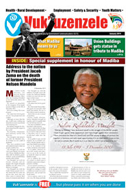Jan 2014
Jan 2014 sadminAddress to the nation by President Jacob Zuma on the death of former President Nelson Mandela
Address to the nation by President Jacob Zuma on the death of former President Nelson Mandela Estelle GreeffMy fellow South Africans, our beloved Nelson Rolihlahla Mandela, the founding President of our democratic nation, has departed.
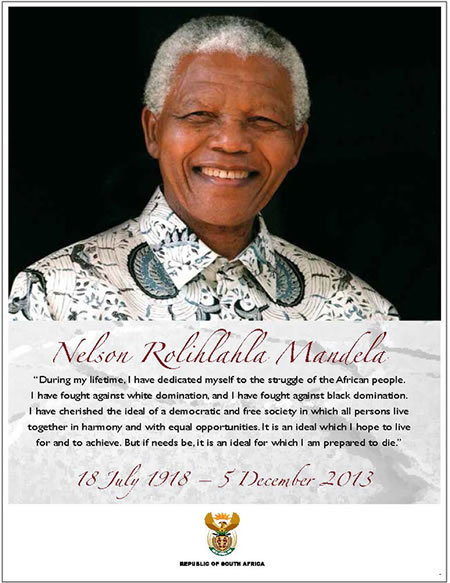 He passed on peacefully in the company of his family around 8.50pm on the 5th of December 2013.
He passed on peacefully in the company of his family around 8.50pm on the 5th of December 2013.
He is now resting. He is now at peace.
Our nation has lost its greatest son. Our people have lost a father.
Although we knew that this day would come, nothing can diminish our sense of profound and enduring loss.
His tireless struggle for freedom earned him the respect of the world.
His humility, compassion, and humanity earned him their love.
Our thoughts and prayers are with the Mandela family. To them we owe a debt of gratitude.
They have sacrificed much and endured much so that our people could be free.
Our thoughts are with his wife Graca Machel, his former wife Winnie Madikizela-Mandela, with his children, grandchildren, great grandchildren and the entire family.
Our thoughts are with his friends, comrades and colleagues who fought alongside Madiba over the course of a lifetime of struggle.
Our thoughts are with the South African people who today mourn the loss of the one person who, more than any other, came to embody their sense of a common nationhood.
Our thoughts are with the millions of people across the world who embraced Madiba as their own and who saw his cause as their cause.
This is the moment of our deepest sorrow.
Our nation has lost its greatest son.
Yet, what made Nelson Mandela great was precisely what made him human. We saw in him what we seek in ourselves.
And in him we saw so much of ourselves.
Fellow South Africans, Nelson Mandela brought us together and it is together that we will bid him farewell.
Our beloved Madiba will be accorded a state funeral.
I have ordered that all flags of the Republic of South Africa be lowered to half-mast from 6 December and to remain at half-mast until after the funeral.
As we gather to pay our last respects, let us conduct ourselves with the dignity and respect that Madiba personified.
Let us be mindful of his wishes and those of his family.
As we gather, wherever we are in the country and wherever we are in the world, let us recall the values for which Madiba fought.
Let us reaffirm his vision of a society in which none is exploited, oppressed or dispossessed by another.
Let us commit ourselves to strive together, sparing neither strength nor courage, to build a united, non-racial, non-sexist, democratic and prosperous South Africa.
Let us express, each in our own way, the deep gratitude we feel for a life spent in service of the people of this country and in the cause of humanity.
This is indeed the moment of our deepest sorrow.
Yet it must also be the moment of our greatest determination.
A determination to live as Madiba has lived, to strive as Madiba has strived and to not rest until we have realised his vision of a truly united South Africa, a peaceful and prosperous Africa, and a better world.
We will always love you Madiba! May your soul rest in peace. God Bless Africa. Nkosi Sikelel' iAfrika.
Nelson Mandela: forever in our hearts
Nelson Mandela: forever in our hearts Estelle GreeffThere has been an outpouring of emotion across the world following the death of former President Nelson Mandela. Social media has become an outlet for many South Africans to express their grief and celebrate Madiba’s life and legacy. Here are some of the messages posted on social media platforms.
His courage, devotion and loyalty to his people and nation is an inspiration to all those who love freedom. My heartfelt sympathy and condolences on this immense loss, which is felt by his family and the nation. May his soul rest in peace. - Thandeka Damoied
A great man has passed. Let us remember his message! My thoughts go out to his family and all the people of South Africa! - Rob Westgeest
We all knew that it was inevitable but it’s still sad. The biggest legend ever! Thank you. RIP our Madiba. Naming any road, monument or airport after Madiba just doesn’t do the man justice. South Africa should be renamed Nelson Mandela. - Hodren Naidoo
One of the greatest persons who ever lived is gone now... RIP Mr Mandela... You will be missed by the whole world. - Wouter Helmig
Thank you Madiba. Thank you for being the light that illuminated our steps in the middle of the fog in order to achieve the precious freedom. - Emdadul Haque Masum
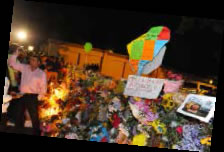 RIP Madiba! May you look down upon us from the heavens above and continue to drive the spirit of our proud nation. - Yoshlin Francis
RIP Madiba! May you look down upon us from the heavens above and continue to drive the spirit of our proud nation. - Yoshlin Francis
 RIP Madiba. We will always remember what you did for us and our country. You will forever be in our hearts. - Sarah Jane Jansen
RIP Madiba. We will always remember what you did for us and our country. You will forever be in our hearts. - Sarah Jane Jansen
Never again will any single human being touch the hearts, inspire the minds and change the lives of an entire nation. You will live on forever and the country you fought so hard for will one day become worth your great sacrifice. - Thanusha Naidu
Hamba kahle Tata. You were really blessed and sent to free and unite the nation. You left us with the questions and tasks we need to carry out and fulfil. Go well our true, fine leader. - Masilo Tsotetsi
 I am a product of not only what Nelson Mandela fought for but of what many others that gave their lives for - I am South African! - Angus McNamara
I am a product of not only what Nelson Mandela fought for but of what many others that gave their lives for - I am South African! - Angus McNamara
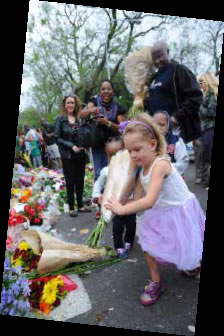 Lala ngoxolo Madiba. We will miss you. We will be forever grateful for what you did for us and our country. You inspired me to be involved in the struggle from an early age and that shaped my life and the values that I hold dearly today of respect for human dignity and freedom. Your legacy and spirit will never die. Viva Mandela, viva. - Mbulelo Bungane
Lala ngoxolo Madiba. We will miss you. We will be forever grateful for what you did for us and our country. You inspired me to be involved in the struggle from an early age and that shaped my life and the values that I hold dearly today of respect for human dignity and freedom. Your legacy and spirit will never die. Viva Mandela, viva. - Mbulelo Bungane
Nelson Mandela: forever in our hearts Thank you Madiba for everything that you did for our beautiful country. South Africa may have lost its favourite son today but your humility, forgiveness, selflessness, caring and your beautiful smile will live on in the hearts of all South Africans always. We are truly grateful for the sacrifice you made to give us freedom and for your leadership during the dawn of our democracy. Condolences to the Mandela family. Hamba kahle Tata. We salute you. - Deereshan Naidu
Siyabonga. Thank you for Madiba's life. Myself, Thembinkosi, my wife May, and children Awande, Happy, Sibonelo, Buthulwazi, Zwelethu feel proud to be South Africans and Africans. He taught the world Ubuntu. Salute! Amandla!! Hamba kahle!! - Mo Buthelezi
My heart is broken and my eyes are wet... Today I am crying for a man who changed a country and made this world a better place. His soul now is definitely as free as an eagle... Fly high Madiba. - Eduardo Mereu
God bless his family. RIP Nelson Mandela. My five-year-old son will one day be told who you were and what you did!!! You will be missed!! - Cindy de Hommel
Nothing comes from nothing. Mr Mandela was the true example of this statement. I admire him for his struggle on his road to freedom. He has finally reached that destination. - Frans Labberton
 Wow!! I didn't think I would be so emotional. How do you explain Mandela to a five-year-old? The only explanation I could think of was Moses from the Bible. God saw the suffering of his people and raised him up as their deliverer! Tata, we celebrate your life, your spirit and we stand very grateful to God Almighty for giving you the strength to do what was deemed impossible. Rest in peace. - Wezi Mashinini
Wow!! I didn't think I would be so emotional. How do you explain Mandela to a five-year-old? The only explanation I could think of was Moses from the Bible. God saw the suffering of his people and raised him up as their deliverer! Tata, we celebrate your life, your spirit and we stand very grateful to God Almighty for giving you the strength to do what was deemed impossible. Rest in peace. - Wezi Mashinini
The day Nelson Mandela walked out of Robben Island will stay in my mind forever. A big day for SA and for the world…Rest in peace Mr Mandela. - Bas Brugman
A legend, hero, father and grandfather but he received a call and followed the instructions from God. He’s watching us crying but he’s happy where he is because he’s with the angels. May his soul RIP.....Long live a legend. Amandla ngawethu. - Andy Tolokazi Tokwe
I hope his memory will always be our country’s compass. - Mari du Preez
Learners impress with ANA results
Learners impress with ANA results sadminThe Annual National Assessment (ANA) results show that while there is still room for improvement, progress is being made in improving learners’ skills in literacy and numeracy in the lower grades
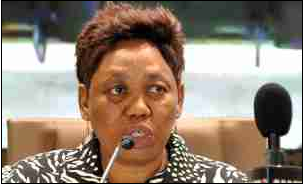 The revolutionary e-learning initiative was launched by the Department of Basic Education in partnership with Modern Information Business (MIB) recently.
The revolutionary e-learning initiative was launched by the Department of Basic Education in partnership with Modern Information Business (MIB) recently.
Basic Education Minister Angie Motshekga released the results recently at Mahlahle Primary School in Pretoria. The school achieved an average percentage of 69 per cent for mathematics in Grade 3 and 67 per cent for English (Home Language) in Grade 6.
“I am confident that performance in the education system is on an upward trend and all our interventions and programmes are beginning to produce the desired outcomes. Learner achievement in both language and mathematics in the Foundation Phase is largely of adequate quality and level,” said Minister Motshekga.
The 2013 assessments were conducted in Grades 1 to 6 and Grade 9 in September 2013 at all public and state-funded independent schools. Over seven million learners sat for the tests.
Results
- Grade 1 national average performance in literacy was 60 per cent. It was 58 per cent in 2012. In numeracy it was 60 per cent down from 68 per cent in 2012.
- Grade 2 national average performance in literacy was 57 per cent, compared to 55 per cent in 2012. In numeracy it was 59 per cent up from 57 per cent in 2012.
- Grade 3 national average performance in literacy stood at 51 per cent, compared to 52 per cent in 2012. In numeracy, learners performed at an average of 53 per cent, compared to 41 per cent in 2012.
- Grade 4 national average performance in language was 49 per cent for Home Language and 39 per cent for First Additional Language, compared to 43 per cent in Home Language and 34 per cent in First Additional Language in 2012.
- Grade 4 average for numeracy was 37 per cent, unchanged from 2012.
- Grade 5 average in language was 46 per cent for Home Language and 37 per cent for First Additional Language, compared to 40 per cent in Home Language and 30 per cent in First Additional Language in 2012. In numeracy, the national average performance was 33 per cent, up from 30 per cent in 2012.
- Grade 6 national average performance in language was 59 per cent in Home Language, compared to 43 per cent in 2012 and 46 per cent in First Additional Language, compared to 36 per cent in 2012. This was an improvement of 16 per cent in Home Language and 10 per cent in First Additional Language. For mathematics, the average performance was 39 per cent, up from 27 per cent in 2012.
- Grade 9 national average performance in language stood at 43 per cent (Home Language), unchanged from 2012 and 33 per cent (First Additional Language), a drop from 2012’s 35 per cent.
- Grade 9 mathematics, the national average was 14 per cent, an improvement of 1 per cent from 2012.
Above the 50 per cent mark
Results achieved in numeracy/mathematics:
- In Grade 1, 71 per cent of learners achieved above 50 per cent, compared to 77 per cent in 2012.
- In Grade 2, 70 per cent achieved above 50 per cent, compared to 68 per cent in 2012.
- In Grade 3, 59 per cent achieved above 50 per cent, compared to 36 per cent in 2012.
- In Grade 4, 27 per cent achieved above 50 per cent, compared to 26 per cent in 2012.
- In Grade 5, 21 per cent achieved above 50 per cent, compared to 16 per cent in 2012.
- In Grade 6, 27 per cent achieved above 50 per cent, compared to 11 per cent in 2012.
- In Grade 9, 3 per cent achieved above 50 per cent, compared to 2 per cent in 2012.
“Significantly more than half of the Grade 3 learner population achieved adequate to outstanding levels of performance in language and mathematics, a proportion fairly close to the 60 per cent target set for 2014,” the Minister noted. When it came to mathematics, only one out of every 10 Grade 6 learners achieved adequate and higher levels of performance.
The Minister said in both language and mathematics, Grade 9 learners demonstrated a fairly limited range of necessary basic skills and knowl
All systems go for 2014 school year
All systems go for 2014 school year sadminAs learners return to school for another academic year, Basic Education Minister Angie Motshekga has assured them that textbook delays are a thing of the past.
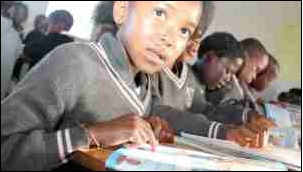 “We are confident that at the start of the school year, all learners will have a textbook in their hands,” said the Minister.
“We are confident that at the start of the school year, all learners will have a textbook in their hands,” said the Minister.
The Department of Education (DBE) is aiming for each child to have one textbook per subject.
The delivery of textbooks is almost complete.
Although there were challenges in provinces like KwaZulu-Natal and the Free State, the department is confident that they will overcome these in time for the start of the school year.
According to the department, the provinces used different methods to secure textbooks for learners.
Some provincial departments experienced challenges, such as issues with the budget, while trying to get the textbooks.
However, the department has been monitoring the situation and has it under control.
Minister Motshekga said progress has been made in the distribution of Learning and Teaching Support Material (LTSM) with over 50 million workbooks distributed every year.
This is part of the department’s commitment to improving literacy and numeracy skills of learners.
Meanwhile, the department intends to start introducing the African Language Policy this year, which aims to promote and develop languages that have previously been side-lined.
“The department will be introducing the policy to expose learners to languages academically that they may use at home but do not study as part of the curriculum, as well as introduce those who have never been exposed to an African language,” Minister Motshekga said.
African languages do not enjoy the same development and status as English and Afrikaans.
For this reason, the department will, over time, ensure that all African languages are equally developed and used by learners in the best interest of their learning and performance in their 12 years of schooling.
This means that once the policy is introduced learners will be offered three languages resulting in extra two or three hours of teaching and learning per week.
This proposal has been widely welcomed, with the consultation process still on-going. “As the department we are ready to incrementally introduce the African language as an additional language with full Grade 1 implementation by 2015.”
The delivery of quality education to all pupils in the country has also been hampered because of the shortage of school furniture.
Minister Motshekga said initiatives have been put in place to address this, including the establishment of an interprovincial task team on school furniture, as well as an agreement between DBE and the Departments of Labour, Correctional Services and Environmental Affairs for the manufacturing and delivery of school furniture.
“Through this programme we have seen the delivery of furniture to 181 schools,” she added.
Sign language added to the curriculum
Sign language added to the curriculum sadminDeaf pupils can now learn sign language at school after the Department of Basic Education (DBE) included it to the curriculum offered to them at schools.
 Both the current National Curriculum Statement (NCS) and its Curriculum and Assessment Policy Statement (CAPS) will now include South African Sign Language (SASL).
Both the current National Curriculum Statement (NCS) and its Curriculum and Assessment Policy Statement (CAPS) will now include South African Sign Language (SASL).
The subject will be rolled out in four phases – first to the foundation phase (Grades R-3), then to the intermediate phase (Grades 4-6), senior phase (Grades 7-9) and further education and training phase (Grades 10-12).
The new curriculum will follow a phased-in approach which will see all grades eventually using the curriculum by 2016.
The department describes the South African Sign Language as a visual and active language that is unlike any written or spoken language in the country. For learners to pick up the language, teachers need to be equipped to teach it.
However, a survey carried out by the department last year revealed that 80 per cent of teachers in the country do not know how to sign or understand the country’s sign language. Provincial departments of education trained teachers and district officials in SASL last year in preparation for the roll out.
In Gauteng there are 1 786 deaf pupils at seven specialised schools. Teachers from one of these schools - St Vincent School for the Deaf in Johannesburg – received training in SASL.
Principal Ingrid Parker said teachers received SASL Level 1 training and would continue with Levels 2 and 3 later in the year.
Teachers have been schooled in the basics of SASL but have not yet been taught how to teach SASL using the new curriculum. Training on the usage and implementation of the new SASL CAPS curriculum will be rolled out during Level 2 and 3 training. To date the provincial education department has trained 115 teachers and officials in SASL.
Parker said that the new curriculum, rolled out from Grade R, would be easily picked up by deaf learners and gives recognition to a language that the deaf community already uses.
The principal, who herself has a hearing disability, added that she was thrilled that deaf learners could now study two languages as required by the Language in Education Policy.
“Deaf people have been exempted from doing the second language and receive an endorsed matric which is still seen as inferior. An important step is to get SASL as a recognised university acceptance subject,” she said.
Bursary office gives hope to Mpumalanga students
Bursary office gives hope to Mpumalanga students sadminYoung people in Mpumalanga have a new avenue to access bursaries, learnerships and internships.
The Education, Training and Development Practices Sector Education and Training Authority (EDTP-SETA) has opened an office in Mbombela to make it easier for them to apply for funding.
Nombulelo Nxesi, chief executive of the EDTP-SETA, said the youth should take advantage of the office and use it to apply for bursaries, internships and learnerships to “better their lives and those of their communities”.
“The government has provided opportunities for you to fight poverty because our aim is for you to be employable and also open your own businesses,” said Nxesi.
A range of bursaries focusing on scarce skills is available for either Further Education and Training colleges or universities.
According to Nxesi, the EDTP-SETA has trained more than 5 000 young people around the country in the past two years.
The EDTP-SETA bursaries provide opportunities for workers and unemployed learners in the education, training and development sector to gain qualifications in scarce and critical skills in both intermediate and higher levels.
Bursaries are available in the following programmes:
- National Professional Diploma in Education (NPDE).
- Post Graduate Certificate in Education (PGCE).
- B.Ed Mathematics and Science.
- B.Ed Foundation Phase.
- Certificate in Education.
- B. Com; Applied Mathematics.
- Masters in Commerce.
- ACE in Leadership and Management.
- Computer Studies.
- Human Resource Management and Public Finance.
According to the ETDP-SETA website, selection criteria include the following:
- The applicant’s academic ability.
- Eligibility for an approved degree or PGCE in one of the priority areas.
- Commitment to a teaching career, which includes interest in working with young people; enthusiasm for a professional career in teaching; readiness to face and overcome difficult challenges and personal integrity.
- Commitment to teach in any school to which a student may be appointed by a provincial Education Department
Latecomers at FETs in for a shock
Latecomers at FETs in for a shock sadminAs part of the turnaround strategy for the country’s Further Education and Training (FET ) colleges, the Department of Higher Education and Training has introduced an attendance and punctuality policy.
The policy will ensure students are in class and on time and will be introduced at all FETs across the country this year.
It will also help ensure FETs function properly, stability and boost the pass and certification rates for the colleges, which have been identified as a crucial sector in providing the country with the skills it needs to grow economically.
From now on there will be a regular and consistent process put in place by college management to monitor, follow up and report attendance.
Students will be expected to explain in person the reason for their absence and the authorisation of absences will be limited to specific situations.
Higher Education Director-General Gwebinkundla Qonde, says poor attendance and consistent tardiness will have an impact on the students’ examinations and funding.
He says students will be allowed to write examinations for every subject they have attained a minimum of 80 per cent attendance.
“FETs will be required to verify and provide attendance information to the department before the release of examination entry permits to students at the start of the examination session,” said Qonde.
In addition, the National Student Financial Aid Scheme (NSFAS) payments for tuition, travel and accommodation will only be made if a student has a minimum of 80 attendance. Students who don’t attend class satisfactorily will face disciplinary action.
Qonde says students who don’t take their studies seriously should not be at colleges. “Colleges must enrol students who have an appetite to learn…we saw it fit that government must get the value for money from the operations of colleges by regulation and standardising good practice.”
New FETs open doors of learning in rural areas
New FETs open doors of learning in rural areas sadminRural areas across the country are set to get their own Further Education and Training (FET) colleges, making further education more accessible to those who live there.
Construction of the colleges is currently underway and is expected to be finished by October.
According to the Department of Higher Education and Training, FETs are being built in four provinces.
In Limpopo, colleges are going up in Giyani and Thabazimbi, while Mpumalanga will get one in Balfour. The Eastern Cape colleges are being built in Graaff-Reinet, Lusikisiki, Sterkspruit and Aliwal North, while the KwaZulu-Natal colleges will be in Msinga, Greytown, Mzimkhulu and Bhambanana. Nkandla will get two skills centres.
Apart from building new FETs, the department is also refurbishing existing ones in Nongoma and Vryheid.
This infrastructure development will enable the colleges to provide an 18 000 extra lecture room seats.
The building and refurbishment of colleges is expected to create 17 500 permanent jobs. This will include academic and support staff as well as construction-related jobs.
The department has set aside R2.5 billion for the upgrade and construction of FETs to as it aims to increase access to FET colleges learning programmes and also to transform colleges into institutions of choice.
The money will go towards the construction of the new campuses, which will boast student accommodation facilities, modern teaching and learning lecture rooms, workshops, simulation rooms, resource and recreational centres.
Govt helps farmer find his feet
Govt helps farmer find his feet sadminAn Mpumalanga vegetable farmer, who lost his farming equipment when floods ravaged the area 13 years ago, has found success in mixed farming.
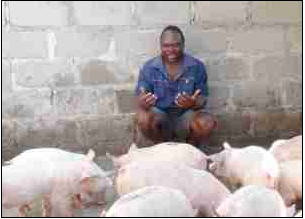 Raymond Sibuyi, of the Green Farm Piggery Project in Mkhuhlu near Hazyview, started farming in 1997.
Raymond Sibuyi, of the Green Farm Piggery Project in Mkhuhlu near Hazyview, started farming in 1997.
However, in 2000 floods destroyed his irrigation system and pumping engines.
“The damages were severe and proved to be too costly for me to bounce back. I was forced to quit farming and went into construction to earn some money to revive my farming career,” said the 49-year-old.
This eventually happened in 2007 when Sibuyi started his vegetable farm from scratch. Later he was introduced to pig farming.
Sibuyi’s farming ambitions were realised through the help of the Mpumalanga Department of Agriculture, Rural Development and Land Administration’s Masibuyele Emasimini (Back to Farming) and Masibuyele Esibayeni (Back to the Kraal) programmes.
The Masibuyele Emasimini programme was introduced in 2005 to encourage communities to take advantage of government’s agriculture-related projects.
The programme encourages households to use their backyards and fields for household food production and provides support through machinery, technical and advisory services to poor communities.
The Masibuyele Esibayeni programme started in 2011 after livestock farmers raised concerns that they were not enjoying the same benefits that crop farmers did through the Masibuyele Emasimini programme.
Vegetable farm
Sibuyi is happy with the assistance he received.
“The department helped me with tools for my vegetable farm through the Masibuyele Emasimini programme.
“As part of the Masibuyele Esibayeni programme I received 10 pregnant sows and a boar,” he recalls.
Sibuyi was allocated 10 hectares of land by the Nkuna Tribal Authority in Mkhuhlu. He uses eight hectares for vegetable farming and the rest for the pigs.
Sibuyi says livestock farming comes with its own challenges.
“I had about 126 pigs but ended up with 84 the when others died. I am not sad because I have the vegetable farm as well.
“Mixed farming is very interesting and saves on costs because any vegetables that are not sold are used to feed the pigs, while the manure that comes from the pigs is used for the vegetable farm.”
He supplies the Barberton Abattoir with pigs, provided the pork quality meets the requirements and Fresh Mart with vegetables. “It has always been a farmer’s challenge to find a market for the product and I was fortunate to source the market with the assistance of the department.”
Sibuyi employs 12 permanent workers and 20 temporary workers.
Rural garden to supply fresh produce to US retail giant
Rural garden to supply fresh produce to US retail giant sadminWhen Peter Sekwele abandoned his business to start a cooperative he could never have imagined how successful it would become.
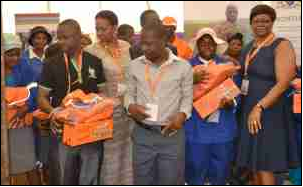 What started as a garden at his and other community members’ homes has mushroomed and Sekwele and his partners will soon be supplying Massmart, which is owned by US retail giant Walmart, with vegetables.
What started as a garden at his and other community members’ homes has mushroomed and Sekwele and his partners will soon be supplying Massmart, which is owned by US retail giant Walmart, with vegetables.
A qualified boilermaker by profession, Sekwele, from Sokhulumi village in Gauteng, was selling iron kettles when he decided to help feed his community and create jobs.
Sekwele and 24 others each had gardens at their homes and decided to pool their efforts and started the Akwande Food Garden Project in 2010. The cooperative faced a major challenge because of a lack of space.
However, the cooperative’s fortunes improved when the local chief, Joyina Mahlangu, agreed to give them 2,5 hectares of land to plant vegetables.
Now, the Akwande Food Garden Project employs 20 locals.
Sekwele said although the cooperative was already selling to Pick n Pay, Spar and Shoprite, they were excited by government’s efforts to help them access a new market - Massmart
“I can proudly tell you that Akwande Food Garden Project now has a market. They are going to be among the biggest producers of tomatoes in Gauteng if not in the country,” said Gauteng MEC of Agriculture and Rural Development Nandi Mayathula-Khoza, who visited the project recently.
She added that government was pleased to see people working together to fight poverty, unemployment and hunger through agricultural cooperatives.
Rural Development and Land Reform Minister Gugile Nkwinti was also overjoyed.
“I’m really happy with the great job being done at this project. This is a typical Masibambisane project because government and the private sector are providing support, while the people are in charge of their own cooperative.
“With government supporting their cooperative, this project will never become a white elephant. What is happening here is just brilliant.”
Job creation and food security
Sekwele said since they started the food garden in 2010, residents are no longer travelling to retail stores in Bronkhorstspruit to buy vegetables.
“I can proudly say that we are feeding our community with our fresh produce and we’ve already created permanent jobs for 20 locals, of them 16 are women. We grow tomatoes, cabbage and beetroot.”
Sekwele was surprised and honoured when the Minister and MEC visited the project.
“I never thought the leadership was aware of what we are doing here at our remote area. Their visit today will encourage my colleagues and I to continue working very hard to produce more food, not only for our community, but for the country as a whole,” he said.
The project uses the hydroponics method, which uses a nutrient solution rather than soil, to grow tomatoes. Growing tomatoes hydroponically allows Sekwele and his team to grow them in a controlled environment without weeds, insects or soil-borne diseases.
A hydroponic system also optimises space. Hydroponic tomato plants grow faster than soil-grown plants and their yield is greater.
Apart from farming, the cooperative is keeping the kids of the area occupied by putting up swings and slides on the land. Sekwele said the cooperative installed the equipment “so that when the mothers are busy working at the project, their kids can play”.
Last year, Agriculture, Forestry and Fisheries Minister Tina Joemat-Pettersson signed an agreement with non-governmental organisation TechnoServe SA and Massmart, which is aimed at creating jobs and providing support for smallholder farmers, particularly women farmers, in poor communities.
The R 15 million investment includes training, mentoring, technical assistance and establishing essential links to both finance and retail markets.
Human trafficking: what to look out for
Human trafficking: what to look out for sadminYour dream job could turn out to be your worst nightmare.
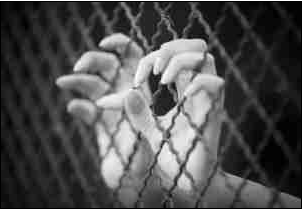 This is the warning from the Directorate of Priority Crime Investigations, also known as the Hawks, following an increase in human trafficking. Human trafficking refers to cases where victims are lured from their homes and kept as sex slaves or forced to work for little or no money, losing their freedom in the process.
This is the warning from the Directorate of Priority Crime Investigations, also known as the Hawks, following an increase in human trafficking. Human trafficking refers to cases where victims are lured from their homes and kept as sex slaves or forced to work for little or no money, losing their freedom in the process.
According to the Hawks, the method used by human traffickers is similar in most countries, where victims are offered great job opportunities.
“Victims are transported to the destination where exploitation will take place or where they will be hidden before exploitation. They will be told to pay off their debts which include transportation, food and accommodation,” said Hawks spokesperson Captain Paul Ramaloko.
In some cases victims are taken to a different country or even another province where they are exploited.
Captain Ramaloko said victims are some times drugged, which makes them dependent on their traffickers.
They are then forced to work for their traffickers to get more drugs.
The high unemployment rate in South Africa is a contributing factor to human trafficking, he added.
Hotspots
According to Captain Ramaloko, the crime is most prevalent in KwaZulu-Natal, Gauteng and the Western Cape.
From April 2012 to March 2013, the Hawks dealt with 19 cases of human trafficking, mostly involving women from other countries who were brought to South Africa.
“It is important to note that cases are only opened where there are victims. There were also rescue missions that were conducted but cases were not opened. Trafficking means that there is a victim and if the victim is not willing to cooperate or to open a case, nothing can be done,” Captain Ramaloko added.
The Hawks are training police to identify cases of human trafficking and swiftly deal with them.
“We train members from the stations and ports of entry. We also train other law enforcement agencies in the Southern African
Regional Police Chiefs Cooperation Organisation region, which is an investment for the country because it will also help in fighting human trafficking in South Africa.” Apart from detecting and investigating human trafficking police also carry out awareness campaigns to educate the public. Captain Ramaloko said traffickers could be spotted at the recruitment phase.
Offers that seem too good to be true are early warning signs of trafficking. Victims need to be more streetwise by alerting others about their whereabouts.
“For example they can take down the registration of car picking them up and SMS it to a friend or relative.
“They can also ask for assistance from the police stations or from the trafficking hotline for checks of some of the offers,” he added.
Warning signs:
- A person’s passport is kept by someone else.
- Some sort of concealment (kidnapping) of a person.
- A person is accompanied by someone who speaks for them.
- A person appears to be fearful of or under the control of another person.
- A person cannot leave a job to find another one and does not have control over wages or money.
- A person works but does not get paid normal wages.
- A person has no choice about hours worked or the working conditions.
- A person works long hours, lives at a work site or is picked up and driven to and from work.
- A person show signs of physical abuse or injury.
- A person owes money to their employer or someone else who they feel honour bound to repay.
- A person is not working in the job originally promised to them.
- A person is forced to provide sexual services in a strip club, massage parlour, brothel or other locations
Human trafficking can be reported at police stations or contact the human trafficking hotline on 0800 737 283 or 0800 555 999.
SASSA declares war on corruption
SASSA declares war on corruption sadminIf you are receiving a social grant illegally, you could soon be facing the full might of the law and end up behind bars.
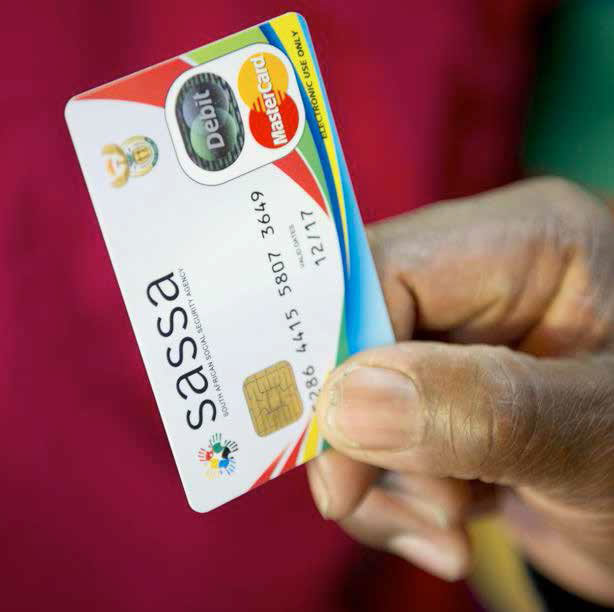 The South African Social Security Agency (SASSA) has stepped up efforts to root out fraud and corruption in the social grant system and the results are beginning to show.
The South African Social Security Agency (SASSA) has stepped up efforts to root out fraud and corruption in the social grant system and the results are beginning to show.
The agency has taken legal steps against officials and members of the public who have defrauded the system.
According to Renay Ogle, of SASSA’s Fraud Management Unit, the agency will show no mercy to the public or employees who are caught up in social grant fraud. “Social grant fraud and corruption does not pay. Do not continue with it and never get involved with it because you will be caught, investigated, arrested, prosecuted, convicted, jailed and separated from your family,” she warned.
Since April 2012 about 56 members of the public have been arrested for their involvement in social grant fraud and corruption. SASSA employees who were on the wrong side of the law have also found themselves in trouble.
The most prominent case involves SASSA’s head of communication Paseka Letsatsi, former ANC Youth League treasurer Pule Mabe and Kabedi Ramosa, who have been implicated in a scam that allegedly defrauded the agency of a large amount of The Anti-corruption Hotline is 0800 60 10 11 or 0800 701 701. money. The three are on bail and Letsatsi has since gone on voluntary special leave. Many other officials have been suspended, dismissed or convicted for their fraudulent activities.
According to the agency, 7 734 fraud and corruption cases were reported in the 2012/2013 financial year.
By the end of August 2013, 1 537 cases had been closed and 3 932 investigations finalised. The amount involved in the finalised investigations totalled R60 million with R1.2 million recovered.
From 1 April to 31 July 2013, 1 112 cases were finalised. The value of the finalised cases was R 4 million, of which R 203 050 was recovered.
By September 2013, SASSA was investigating 6 792 suspicious grants involving 216 SASSA employees to the value R93 million. According to Ogle, measures put in place by the agency are producing results.
“The silence has been broken. Employees are starting to report fraud and corruption.”
Statistics indicate that identified fraud and corruption are most prevalent in child support grants, followed by disability grants.
At its first annual anti-corruption conference recently, SASSA CEO Virginia Petersen vowed that the agency would act decisively to root out corruption in its ranks.
The conference brought together mostly SASSA frontline staff (data capturers and verifiers). The aim was to raise awareness on fraud detection.
“We remain committed to fighting and preventing grant fraud from our staff and members of the public and this is the conference where we will start to close the fraud and corruption gap in the social grant administration process,” said Petersen.
Ogle added that the agency had put measures in place that would allow it to detect fraud and corruption at an early stage.
She sent a strong warning to recipients of social grants and service providers involved in fraud, saying that the net was closing in on them.
“We are taking a zero tolerance approach and our message to clients, service providers and officials is that you will be caught and you will be convicted,” she said.
She called on employees and the public to report cases of social grant fraud and corruption.
The Anti-corruption Hotline is 0800 60 10 11 or 0800 701 701.
E Cape health gets a makeover
E Cape health gets a makeover sadminMassive upgrades to health infrastructure in the Eastern Cape are underway, promising better health services to those in the province.
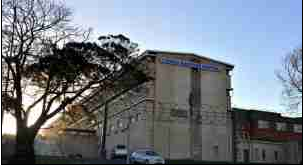 The Hospital Facilities Improvement Programme, led by provincial Health MEC Sicelo Gqobana, is giving the Eastern Cape health system a new look.
The Hospital Facilities Improvement Programme, led by provincial Health MEC Sicelo Gqobana, is giving the Eastern Cape health system a new look.
MEC Gqobana said that in 1994 the department inherited dilapidated and mud structure health facilities at rural hospitals.
The MEC noted that hospitals in the eastern part of the province needed the most revitalisation.
Through the programme, the Eastern Cape Health Department is improving health infrastructure, while at the same time providing a conducive working environment for nurses and doctors so that they can do their jobs efficiently and provide quality health care to patients.
The department has started renovating several hospitals across the province.
Upgrades at Frere Hospital include a new medical ward and paediatric Intensive Care Unit, as well as an adult Intensive Care Unit, Oncology Unit, neurosurgery and chemotherapy unit.
The department was expected to spend R167 million on Frere Hospital.
The Cecilia Makiwane Hospital in Mdantsane will boast a fully functional laundry unit and a mortuary. Upgrades to the hospital are expected to be completed by the end of the year at a cost of R935 million and will create 1 600 employment opportunities.
Community members of Bizana will be pleased to know that the St Patrick Hospital will receive a new casualty department, X-Ray block, new surgical wards, maternity unit and a TB and communicable disease wards.
These new developments were expected to create about 356 work opportunities and cost R347 million. The project is expected to be completed by the end of the year.
Construction at the Madwaleni Hospital in Elliotdale began with the R28.5 million Gateway Clinic and is expected to be completed by the end of the year.
The construction will be done in five phases with phase one being the clinic and phase two the construction of bulk underground infrastructure such as sewage systems.
Phase three will be the actual structure of the main hospital that will have 120 beds.
The fourth phase will be the construction of the nursing college, and phase five will be accommodation for the professionals.
Beat the bulge to stay healthy
Beat the bulge to stay healthy sadminObesity has become a serious health problem in South Africa, leading to many preventable diseases and putting pressure on the health system.
 About 66 per cent of South African women and 33 per cent of men are overweight, with about 10 per cent of men and 28 per cent of women classified as morbidly obese.
About 66 per cent of South African women and 33 per cent of men are overweight, with about 10 per cent of men and 28 per cent of women classified as morbidly obese.
Obesity is a global problem as well. According to the World Health Organization (WHO), at least 2.8 million adults around the globe die each year as a result of being overweight or obese. Obesity is on the rise, having nearly doubled since 1980.
A number of health conditions or complications are associated with obesity, including high blood pressure, coronary heart disease, insulin resistance, type 2 diabetes, stroke, gall bladder disease, several types of cancers, depression and lower back pain.
What causes weight gain?
You may become overweight and then obese when you:
- Eat more food than your body can use.
- Don’t get much exercise.
- Don’t have an active lifestyle.
- Suffer from an under-active thyroid.
Certain medications, such as some antidepressants and antipsychotic medications, may also cause weight gain.
According to WHO, global increases in weight gain and obesity can be as a result of factors, including a shift in diet towards increased intake of energy-dense foods that are high in fat and sugars but low in vitamins, along with a decrease in physical activity.
Getting healthy
You don’t need to visit the gym every day or exercise excessively to get healthy. You also don’t have to ‘diet’ in the traditional sense of the word. Making sensible choices when it comes to food and small lifestyle changes can go a long way in helping you slim down.
Lifestyle:
- Have at least three meals a day. Choose healthy snacks such as fruits between meals if you are constantly hungry.
- Eat breakfast. People who skip breakfast are more prone to obesity.
- Reduce your fat intake, especially saturated fats. Saturated fats are animal fats and can be found in cookies, pastries, processed and fast foods.
- Try to eat fish at least three times a week but not fried fish. Fish is rich in protein and naturally low in fat.
- Try to prepare food by using healthy cooking methods such as steaming, boiling, grilling or baking. This will automatically reduce the fat while keeping the essential nutrients in the food.
- Use extras such as cream, butter, mayonnaise, margarine, oil and dressings in moderation.
- Increase your fibre intake by eating whole wheat bread and pasta, brown rice and oats. Fibre makes you feel fuller for longer.
- Remember your five portions of fruit and vegetables a day.
- Limit your alcohol intake and try to drink ‘light’ wine and beers, as these are lower in energy.
Exercise
A combination of exercise and diet is the most effective long-term approach to losing weight. There is, however, no need to go to extremes when it comes to exercising. Simply try walking if you do not like jogging. Choose the stairs instead of the lift. You can even start by parking your car further away from the entrance of the shopping mall. Exercise is not just about losing weight – it is about looking after your health. It will also motivate you to keep a watchful eye on what you eat.
Visit your health care provider or a dietician so that you can come up with a way to lose weight that will be the best and healthiest for you.
Incubator gives young techs business skills
Incubator gives young techs business skills sadminIt was his retrenchment from an international bank that shook Sechaba Ngwenya into action. After this experience, the former banker had ample time to map his career path clearly and in a different direction.
Unlike many people who fall into hard times, Ngwenya remained upbeat because he finally had a chance to become start his own company. He says one of his dreams was to open a bank but due to the amount of money required, he couldn’t. Instead he developed a web application that allows businesses to lend each other money.
Ngwenya is one of the beneficiaries of the Information Communication Technology (ICT) business incubator launched by the Department of Trade and Industry (dti). The business incubator is one of government’s strategies to put South Africa's young people to work and pull them into the economy.
Trade and Industry Minister Rob Davies says “a package of measures” is needed to tackle unemployment, which is estimated to be around 25 per cent of the population between the ages of 15 and 60.
Minister Davies says that through the Youth Enterprise Development Strategy, his department hopes to increase the percentage of youthmanaged start up businesses in South Africa from 5 per cent to 50 per cent.
“We are trying to bring a major change in how business is being done in South Africa,” Minister Davies says. “We want to create an environment where local small suppliers can be so well capacitated that they would be able to supply our private sector, doing away with their dependence on imported goods. The ultimate goal is to see our entrepreneurs producing value-added products that would compete with the import influx,” he adds.
The incubator is one of 30 supported by the dti’s Incubation Support Programme, which aims to encourage the growth of youth enterprises and provide the required skills to entrepreneurs.
There are plans to open another incubator in Mpumalanga this year, with a further 18 to be established across the country.
Pay increase for domestic workers
Pay increase for domestic workers sadminDomestic workers will enjoy extra money in their pockets this year after Labour Minister Mildred Oliphant announced new minimum wages.
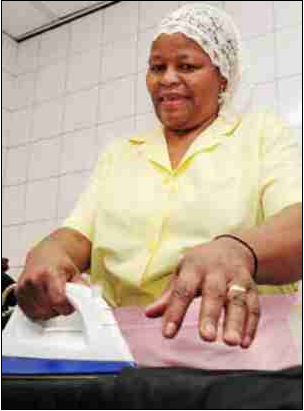 The Minister said that as of 1 December 2013, the minimum wage for domestic workers working in metropolitan areas for more than 27 hours a week would be R9.63 per hour and for those working in rural areas or small towns it would be R8.30 per hour.
The Minister said that as of 1 December 2013, the minimum wage for domestic workers working in metropolitan areas for more than 27 hours a week would be R9.63 per hour and for those working in rural areas or small towns it would be R8.30 per hour.
According to the new adjustments, contract cleaners are due a minimum wage of between R13.07 and R14.45 per hour.
This means the employer cannot pay the worker less than the stipulated amount but can pay more.
Previously, the minimum wage for domestic workers in metropolitan areas was between R7.65 and R8.95 an hour and those working less than 27 hours per week qualified for between R9.03 and R10.48 per hour.
The new wage adjustments are part of an annual binding determination made by the Minister in terms of the Basic Conditions of Employment Act.
The Department of Labour stressed that domestic workers could not be forced to work more than 45 hours a week, nine hours a day for a five-day work week or eight hours a day for a six-day work week.
However, if they work more than these hours they should be paid overtime at a rate of oneand- a-half times the normal wage or receive paid time off.
For more information contact the national hotline on 0860 163 272 / 08601NEASA
DOC serves up coffee in style
DOC serves up coffee in style sadminOn the streets of Khayelitsha, amid street vendors selling anything from socks to sweets, past shacks and houses and between hooting taxis, lies Cape Town’s first upmarket township coffee shop.
 The Department of Coffee (DOC), started by best friends Vusumzi Mamile, Wongama Baleni and Vuyile Msaku over a year ago, has not only improved the culture of coffee drinking in the area but has also become a bustling tourist attraction.
The Department of Coffee (DOC), started by best friends Vusumzi Mamile, Wongama Baleni and Vuyile Msaku over a year ago, has not only improved the culture of coffee drinking in the area but has also become a bustling tourist attraction.
From children stopping to grab a cup of hot chocolate on their way to school to businessmen enjoying a coffee during their lunch break, DOC has certainly put coffee on the map in this township.
Baleni, a former fireman, always fancied himself as a businessman. After he and Mamile attended a life skills and mentorship training programme they brewed the idea of starting their own business but could not figure what they would excel in. At the time Msaku was working as a barista, a person skilled in the art of coffee making, and the trio decided a coffee shop would be ideal.
“We had to come up with an idea that was unique and would also work in our community so it was very important to do market research before we began,” said Baleni.
However, the community didn’t exactly welcome the idea of a coffee shop in the area.
“People told us they would not pay for a cup because they could have their coffee at home.”
So the trio went back to the drawing board and decided to not only offer coffee but a wider range, from cappuccinos to espressos
- all at affordable prices. These were drinks the community were never really exposed to because of the high prices they are sold at coffee shops in the city.
With the idea swirling, they approached Murray Ingram, an entrepreneur passionate about youth development. Ingram began making calls and approached the Ministry of Service Delivery, an initiative committed to boosting job creation among youth, who agreed to loan them money to start up the company.
Ingram helped them for two years and after finding the perfect premises, designing logos, coffee cups, uniforms and perfecting the menu and products, DOC was ready to open its doors for business. The coffee shop, situated next to the Khayelitsha train station, is now a place for locals to hang out with benches outside and an over the counter service style.
What makes the business thrive is the affordable prices of their beverages - from R6.50 for a cup of coffee to chococinos, lattes, foamy cappuccinos and iced freezeeccinos for all under R10.
“You could never get drinks like these at these prices anywhere else in the city, says Baleni. Not wanting to leave their customers hungry, the team also serves up assorted muffins and snacks. DOC delivers to the nearby hospital, businesses and government departments.
The success of the past year has made the team dream and think bigger. They want to open more branches across the city and ensure the DOC name is associated with quality and affordability.
The men are also role models for youngsters in their community.
“Many of the young kids think all they can do is sell cigarettes and food on the side of the road or become taxi drivers. We try to inspire them to think and dream bigger and work hard at school so they can one day become entrepreneurs like us.”
Giving back to the community is key, say the trio. This they do through their Muffin Run initiative. “We encourage customers to buy muffin vouchers at just R3 and once we have enough vouchers, we deliver muffins at local schools and crèches to feed the children.”
The DOC also holds open days every month that see people and tourists from across the city flocking to the township by train for the open-air market.
For more information on the next open day or how you can donate to the Muffin Run contact Baleni on 078 086 0093.
You can also visit DOC on the corner of Ntlazane Road and Khwezi Crescent in Khayelitsha for your next coffee fix.
Nelson Rolihlahla Mandela: Special supplement
Nelson Rolihlahla Mandela: Special supplement sadminEPWP jobs uplift communities
EPWP jobs uplift communities sadminThe community of Temba in Hammanskraal has reason celebrate after 53 of its unemployed residents were chosen to provide fencing around the Tshwane Dam in Temba.
The project ensures that they earn an income and for some of the 53, it will the first source of income in many years.
The project forms part of the Expanded Public Works Programme (EPWP), created by the Department of Public Works (DPW).
The beneficiaries will, for the next few months, be involved in a series of projects, which include erecting a game fence and security access gates covering a perimeter of 5 500 metres around the dam and various greening community projects.
Mandla Mthiyela, 24, says the new project will bring much needed relief to his family. “With the money I earn I can buy food and clothes for my family, baby formula and nappies for my new born baby.”
According to Gauteng Public Works MEC Qedani Mahlangu, the dam has claimed many lives.
There are no recreational facilities in the area, so residents often swim in the dam and many have drowned as a result.
She added that criminals also use the dam for illegal activities. The new fencing will not only help keep residents and children safe but also keep criminals at bay.
The new project was launched as part of the first ever National EPWP week, which ran from the 28 November to 4 December 2013. The week was part of a campaign by DPW to raise awareness of the benefits of the EPWP and how it is changing the lives of poor and unemployed South Africans.
During the week the department launched other projects across the country, including the roll out of cleaning projects in the Western Cape and the Northern Cape; a grape and vegetable production project in Limpopo; the launch of a youth service programme in Thulamela and a Working on Fire project in the North West.
About EPWP
Launched by government in 2004, the EPWP was created to ease poverty and provide income, work experience and skills development through job and work opportunities for unemployed South Africans. At the time, approximately 40 per cent of South Africans were unemployed and the need for job creation was urgent. To address this, the Growth and Development Summit, which took place in June 2004, allocated R100 billion for employment-intensive public works projects.
Coordinated by the DPW, the EPWP projects are run in four sectors - infrastructure, social, environment and culture and non-state sectors.
The infrastructure sector works in partnership with the Departments of Transport, Cooperative Governance and Traditional Affairs, Water Affairs, Mineral Resources and Energy, and employs people to work in construction and maintenance.
National Youth Service
Key EPWP infrastructure programmes include the Vuk’uphile project, which currently trains people as contractors at NQF level 2 and supervisors at NQF level 4; the National Youth Service which is a year-long skills training and development intervention that equips unemployed youth with technical and life skills training; and the pothole and road maintenance project.
The social sector has created EPWP projects to help deliver government’s services through national programmes like the Early Childhood Development, which educates and cares for children at a crèche level, Home Community Based Care provides basic health services to people in their own homes and the School Nutrition Programme which employs community members as food handlers to provide food to children from needy families.
The Community Crime Prevention project employs volunteers to be active in helping identify community safety priorities for their neighbourhoods; the School Mass Participation employs sports coaches to encourage communities to participate actively in sports to live a healthy lifestyle and the Kha Ri Gude Mass Literacy Campaign helps teach adults across the country how to read and write.
Cultural heritage
The environment and culture sector EPWP projects employs people to improve their local environment and surroundings. The sector focuses on building South Africa’s natural and cultural heritage. Its flagship programmes include employing people as part of its waste management, tourism and creative industries; parks and beautification; coastal management and sustainable energy projects.
The non-state sector programme is a new component of the EPWP that uses wage subsidies to support non-profit organisations in their community development initiatives. The Department of Cooperative Governance manages these.
All the EPWP projects are designed to benefit the communities and create jobs for the unemployed. The jobs created aim to help government reach a target set by President Jacob Zuma - 11 million jobs by 2030. In 2008, the EPWP achieved a major milestone by providing one million work opportunities for the unemployed. By June this year the EPWP would have created over three million work opportunities across all its four sectors
W Cape lays out red carpet for top teachers
W Cape lays out red carpet for top teachers sadminTeachers from the Western Cape recently took a break from the daily grind of classroom work to enjoy the spotlight as the provincial Teachers Awards got underway.
The awards have been held since 2000 by the Department of Basic Education to acknowledge and encourage dedicated teachers in their efforts to develop learners as productive citizens of a democratic, non-racial and non-sexist South Africa.
The following are some of the finalists that will go through to the National Teaching Awards next year.
 Excellence in Secondary School Teaching: Marsha Schwartz
Excellence in Secondary School Teaching: Marsha Schwartz
With over 22 years of teaching experience Schwartz, a foreign-language teacher at Paarl Girl’s High School, believes in practically immersing herself into teaching. Appointed to teach German as a second additional language and Afrikaans as a first additional language, she realised that she would have to learn more about German to be an effective teacher.
She went to Germany and registered for a course in teaching the language. This enabled her to stay ahead and informed regarding the latest education policies, which has not only improved her teaching but also learners’ grasp of the language.
“I make my subject relevant and interesting for my learners by going on field trips,” she says.
 Excellence in teaching Science: Wendy Horn
Excellence in teaching Science: Wendy Horn
Going the extra mile for her learners is something Wendy Horn is known for. She is the current deputy principal and physical science teacher at Settlers High School in Belville and the first provincial recipient of the Excellence in Science Award, a new category added in 2012. Teaching for over 21 years, Horn is described by colleagues as a remarkable, talented, intelligent and versatile teacher.
Horn often arrives at school at 6.30am, ready to receive any learner who wishes to receive extra physical science lessons. Her students have consistently scored a pass rate above 90 per cent for the last 10 years. She says many of them end up choosing careers in engineering and medicine.
Horn is a published author of physical science resources for high school students.
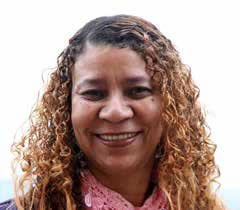 Excellence in teaching Mathematics: Avril Crouch
Excellence in teaching Mathematics: Avril Crouch
Avril Crouch, of Spine Road High School in Mitchell’s Plain, is the first provincial recipient of the Excellence in Mathematics Award. Crouch is a firm believer that children should have fun and enjoy mathematics. To help, she has written a bridging course for Grade 8 learners in mathematics.
She is an international mathematics traveller and has taught learners in European countries by invitation. Teaching mathematics through the use of ICT and technology provides much joy for the learners, says Crouch. From arranging Olympiads to career expos and competitions, she tries her best to make mathematics fun accessible for learners.
Lifetime Achievement Award: Christian Hattingh
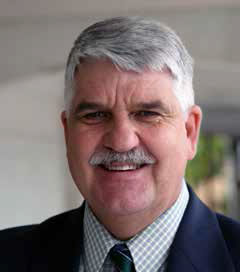 Christian Hattingh has spent more than three decades in education at the Outeniqua High School in George. Starting as a teacher he rose through the ranks and was appointed deputy principal in 1995. Under his leadership as head of the curriculum, the school has managed to meet all targets set.
Christian Hattingh has spent more than three decades in education at the Outeniqua High School in George. Starting as a teacher he rose through the ranks and was appointed deputy principal in 1995. Under his leadership as head of the curriculum, the school has managed to meet all targets set.
Hattingh got more learners to take mathematics as a subject in Grade 10 through to Grade 12. There has been a steady increase - 2010 (35 per cent), 2011 (53 per cent), 2012 (55 per cent) - in the number of matric learners who took mathematics and passed.
Hattingh has designed a system to allow learners and teachers to understand why they make mistakes. “I believe that each learner should design his or her own development plans that value the importance of capacity building and leadership development.”
Other provincial winners included:
- Excellence in Grade R Teaching, Lorna Such of Babbel & Krabbel Hermanus Pre- Primary School, Hermanus.
- Excellence in Primary School Teaching: Junain Adonis from Pieter Langeveldt Primary
- Excellence in Special Needs Teaching, Roeléne Loots of Weber Gedenk Primary, Stellenbosch.
- Excellence in Information and Communication Technology Enhanced Teaching, Hywil Appolis of Riebeeck West Primary School, Riebeeck West.
- Excellence in Primary School Leadership, Ingrid Leukes of St Raphael’s Roman Catholic Primary School.
- Excellence in Secondary School Leadership, Marius Scholtz of Piketberg High School
African markets open doors for local business
African markets open doors for local business sadminRendani Makhomu and Peggy Mahlaba are two of an increasing number of local entrepreneurs venturing into Africa, with many more gazing with renewed interest at the continent.
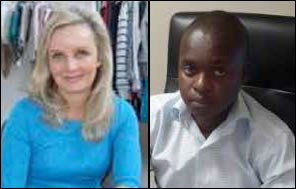 While Makhomu, who runs the Limpopo engineering company Tshete Holdings, plans to set up a small cold-mix asphalt manufacturing plant in Ghana, Mahlaba’s renewable energy firm has since 2011, fitted solar panels and DC boxes in Zimbabwe and Benin and is now busy with a contract in Tanzania.
While Makhomu, who runs the Limpopo engineering company Tshete Holdings, plans to set up a small cold-mix asphalt manufacturing plant in Ghana, Mahlaba’s renewable energy firm has since 2011, fitted solar panels and DC boxes in Zimbabwe and Benin and is now busy with a contract in Tanzania.
The Department of Trade and Industry (dti) assisted Mahlaba, who owns Imbokotho Engineering, to arrange business-to-business meetings and helped her to fund trade trips through its Export Marketing and Investment Assistance (Emia) scheme, which covers up to 90 per cent of the cost of accommodation, transport and other costs associated with attending trade shows, trade pavilions and trade missions.
In 2012/3, Emia gave out grants totalling R116 million to 1 541 companies to attend national pavilions and group missions – up from R88 million to 865 companies the year before.
“I strongly advise every entrepreneur to look at Africa. Just make the point of doing research and particularly use the dti because it’s there for that purpose [to assist exporters],” said Mahlaba.
She said that although the continent represents a growing opportunity, business owners who want to export to the rest of the continent must have patience and tolerance.
During her work fitting solar panels in Benin there was a sudden change in energy ministers and she was hastily summoned to the West African country before the contract could go ahead.
Another option is for business owners to join a trade mission. Makhomu said he joined the department’s trade mission to Ghana in June to explore possibilities of supplying asphalt there after he began manufacturing cold-mix asphalt in South Africa two years ago.
In September, he attended another trade mission in the Democratic Republic of Congo (DRC). “With a delegation it becomes easy – they open up discussion with local companies,” said Makhomu.
The department will lead a trade pavilion to the Ghana International Trade Fair in February 2014.
Another way to generate export sales to the rest of the continent is to host your own buyers’ events – as Nelia Annandale, owner of manufacturer Keedo’s Children’s Clothing, does. Most of her orders to the continent are generated after clients buy her clothes in local stores or when people receive them as gifts from shoppers who have come to South Africa.
Annandale then invites buyers to her own private conferences, which she hosts twice a year, where customers can view new designs and can place orders.
“Africa has really been good to us in the past two years,” says Annandale, who began exporting to the rest of Africa around four years ago. Today, sales to the rest of the continent make up about 7.5 per cent of total sales.
Trade figures from the South African Revenue Service reveal that while Zambia remains the top export destination for South African goods – with exports growing by 83 per cent between 2009 and 2012 to R21.8 billion – exports more than doubled over the same period to the DRC to R12.2 billion.
Other top destinations where SA exports grew over this period are Zimbabwe (up 47 per cent to R19.9 billion), Ghana (up 45 per cent to R4.2 billion), Angola (up 44 per cent to R8.2 billion) and Mozambique (up 42 per cent to R19.3 billion).
The department hopes to conclude the rollout of its National Exporter Development Programme before April.
The programme offers exporter awareness training, a trade information system and export villages to pool resources and jointly overcome challenges that exporters face. Article first appeared in Small Business Connect published by dti.
Training powers Medupi employees for the future
Training powers Medupi employees for the future sadminMore than 17 000 Eskom employees based at the Medupi Power Station in Limpopo are being trained in financial literacy, entrepreneurship and further education and training (FET) courses.
 The massive employee training programme is a response by Eskom and its contractors to minimise the impact of job losses facing employees once the construction of the power plant is complete.
The massive employee training programme is a response by Eskom and its contractors to minimise the impact of job losses facing employees once the construction of the power plant is complete.
Eskom, in partnership with Murray & Roberts, Aveng, Hitachi, LPS Consortium, Actom, Lesedi, Basil Read and Alstom Africa, developed the Medupi Leadership Initiative (MLI) to train semi-skilled and unskilled workers to find employment after the power station is finished.
“The MLI is a voluntary programme that started in the office of Eskom’s Chief Executive and has come to life because of the willingness and contributions of the contractors, government, organised labour and local leaders,’’ says General Manager of Medupi Power Station Roman Crookes.
Medupi is a R105 billion coal-fired power station under construction in Lephalale. The station comprises six units, each generating 794MW each, to add a total capacity of 4 764MW at completion. Medupi forms part of 90-year-old Eskom’s largest-ever capacity expansion programme.
According to Crookes, the MLI could be a new way of approaching large construction projects in the country.
The MLI offers training in financial literacy, a Drive Your Life course, FET courses and small, medium and micro enterprise skills development.
The FET courses include domestic bricklaying,
basic paving, basic welding, automotive service assistant and domestic electrical wiring. Crookes added that the leadership initiative was a good project that could be adopted by others in the construction industry.
“The MLI is the first project of this nature and scale to be undertaken in the South African construction industry. It’s a model that could be replicated at other large infrastructure projects.”
Recently 402 workers completed the financial literacy course and 162 completed the Drive Your Life course. As part of the MLI, as many as 960 workers could be enrolled annually at the Lephalale Further Education and Training College.
Women fight poverty with shoe-making skills
Women fight poverty with shoe-making skills sadminFor a group of elderly women in Roodepoort the entrepreneurial spirit was awakened by the experience of retrenchment and desperation.
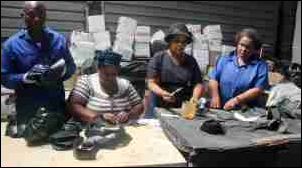 After working for years in the shoe manufacturing industry they were “let go” by their employers in 2006 but they were not ready to give in or retire yet.
After working for years in the shoe manufacturing industry they were “let go” by their employers in 2006 but they were not ready to give in or retire yet.
The women combined their knowledge, resources and experience in making shoes to form their own cooperative and have not looked back since.
The Ujima Bakwena Cooperative manufactures school shoes that are bought and distributed by government with uniforms, free of charge, to needy children in schools across Gauteng.
Mbali Ngwane, deputy director for Special Projects in the Sustainable Livelihoods Unit of the Gauteng Department of Social Development, says Ujima Bakwena is contracted under the School Uniform Project – part of the Bana Pele (children first) programme which “provides a basket of services to vulnerable and orphaned children”.
Members of the cooperative recall the dark years from about 2006, when they were unemployed and the future looked bleak. But the Department of Social Development brought together two struggling cooperatives, Ujima and Bakwena, to form a solid business financed by the National Development Agency (NDA).
The first two years were particularly difficult, recalls Tshidi Sethoga, chairperson of the group. “We worked for two years without pay.”
Sethoga, who worked for Junction Footwear in Roodepoort from 1998 to 2005, says the women enjoy the challenge of running their own business and will never work for another employer again.
She adds that members of the cooperative used the money they received from the NDA in 2008 to buy machines which helped increase their productivity.
Today, the cooperative makes and sells school shoes branded African Action at competitive prices. Besides school shoes, the cooperative also produces sandals and army boots, says Fikile Zikhali, deputy chairperson of the cooperative. Seventeen members of the cooperative and 23 other employees work at the factory. One of the employees is Mhlangana Mchunu, a disabled father of five, who says he’s now able to take care of his family. “Working here has helped me a lot. I have acquired experience and I can look after my children.”
This year the department signed contracts with 444 cooperatives to provide clothing, textile and footwear to about 110 000 needy children from school across the province,” says Ngwane.
What sets Ujima Bakwena apart is that it is a group of women who put aside their differences and combined their human capacity to pursue their common interest, she says.
“They are driven by the passion to alleviate poverty within their families and in the broader community. Most of them come from closed down factories and they had little knowledge of managing but had the hunger to learn - that’s why they are able to generate profit.”
Ngwane says the women also plough their profits back into the business to ensure that the cooperative grows its capacity every year.
As a result the department has increased the order every year – this year it’s 55 000 pairs. Zikhali says the advantage of the cooperative as a business model is that it benefits many people.
“With a cooperative, it’s easy to create jobs.” She encourages other people to open their own cooperatives and help create jobs.
Cooperative bakes its way to sweet success
Cooperative bakes its way to sweet success sadminWhat started off as a small project to teach women how to bake cookies in a community rife with unemployment has escalated into one of the most successful female cooperatives in the country.
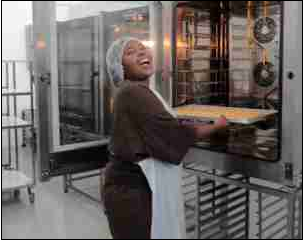 The cookies baked by the cooperative are found in hotels, restaurants, coffee shops and now Pick n Pay stores countrywide.
The cookies baked by the cooperative are found in hotels, restaurants, coffee shops and now Pick n Pay stores countrywide.
Khayelitsha Cookies, which began in 2004 at the Nobuntu Training Centre in Khayelitsha, with just two women and an oven, is a female-owned and operated business in the Western Cape that has created jobs for almost 50 women in the township.
By learning to bake the women now have a skill that helps them to provide for their families, something they struggled to do previously.
It is at the Ndabeni Gateway Park in Cape Town that all the magic happens. With mixing bowls and cookie cutters everywhere and boxes stacked to the ceiling across the factory, the smell of freshly baked home-made cookies fills the air.
Bakery manager Eunice Nyobole, who joined Khayelitsha Cookies in 2008, worked her way up from baker to bakery manager in just five years. “I love my job because I meet women who have struggled to make ends meet just like I have, so I know how to help and inspire them.”
Nyobole says that when women first start at Khayelitsha Cookies they come in withdrawn, guarded and tired from previously working all hours of the day and night trying to put food on the table.
At Khayelitsha Cookies “their hope is restored, they begin to smile and buy new clothing - their burdens are eased,” she says. Managing director Adri Williams prides herself in the quality of the cookies. “What makes our cookies different to other brands is that ours taste home-made because they are. The recipes are passed down from grannies, mothers and aunts.”
It is these delicious secret family recipes that led their first big break, a lucrative hotel group deal that sees the Khayelitsha Cookies on hotel guests’ pillows each night.
Empowering women is the foundation of the business, says Williams.
“Even our slogan, which reads, ‘creating opportunity one bite at a time’, does just that. Every cookie that is sold and every bite that is taken allows these women to put food on the table and create better opportunities for themselves and their families.”
Today Khayelitsha Cookies creates 68 different cookies from chocolate chunk, ginger snap and brownies to butter cookies, rusks and fruity oats. Over and above their busy baking schedule for restaurants, coffee shops and hotels, they also make cookies for corporate gifts. However, the business reached its ultimate goal of getting their cookies into homes across the country by landing their biggest deal of all, supplying retail giant Pick n Pay.
“Our cookies are now available at all Pick n Pay stores at just R12.50 a pack,” says Williams.
For more information about Khayelitsha Cookies call 021 510 2300.
New strategy gives youth-owned businesses a boost
New strategy gives youth-owned businesses a boost sadminYouth matters
Businesses owned and managed by the youth stand to benefit from a new government strategy designed to boost youth par ticipation in the economy.
The Youth Enterprise Development Strategy 2013-2023 was unveiled recently by Trade and Industry Minister Rob Davies.
With over 7.5 million young people between the ages of 14 and 35 unemployed and not attending any learning institution, the Department of Trade and Industry (dti) has developed the strategy to deal with the problem.
It is designed to strengthen businesses operated by the youth by developing their skills and helping them to grow.
Minister Davies said South Africa has been in dire need of a youth-specific employment strategy that would effectively address the high levels of unemployment.
Government has realised that it needs a package of measures that would create more employment opportunities for the youth, he added.
The dti also took note of the challenges young people faced when entering the economic sector and through the strategy, will introduce 10 programmes to address these.
The Youth Enterprise Development Strategy (YEDS) aims to promote youth self-employment and youth-owned and managed enterprises, ensuring that young people actively participate in strengthening and growing the economy.
Minister Davies said the YEDS is government’s response to a call made by the New Growth Path (NGP) for the state to provide bold, imaginative and effective strategies to create millions of new jobs that would address youth unemployment and the limited participation of young people in the economy.
“What we have learned is that two-thirds of our youth entrepreneurs are self-taught and are informal. For our strategy to be effective we need youth targets set aside in priority sectors and what is important is for us to strengthen the capabilities of these informal businesses.
“As a response, the dti has set itself the target of increasing the percentage of youth managed start-up businesses from 5 per cent to 50 per cent,” he added.
Fire fighting steers youngster away from prostitution
Fire fighting steers youngster away from prostitution sadminYouth matters
Fire fighting has saved a young Mpumalanga woman from selling her body to earn a living.
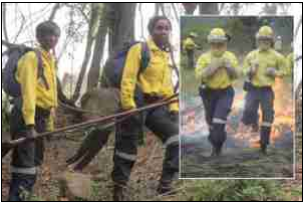 Phindile Mgibe, 26, from Barberton, is one of the only 112 female fire fighters in the province.
Phindile Mgibe, 26, from Barberton, is one of the only 112 female fire fighters in the province.
When her parents died a few years ago and she was left to care for her three younger siblings, Mgibe considered becoming a prostitute to earn money.
“When our parents passed away there was no one to provide for us. Against my better judgment, I almost joined the other girls on the streets who were prostitutes so I could provide for my family,” said Mgibe.
Her prayers were answered when her application to the Working on Fire (WoF) fire fighting programme was approved in 2013.
“Now I am able to put food on the table for my family. I encourage other young women to look out for the WoF recruitment notices and apply,” she added.
According to fellow female fire fighter Smangele Mawelele, the job is challenging but fulfilling.
“Every day when I see myself surrounded by mountains and forestry, I am encouraged and proud of myself,” said the 20-year-old, who is also from Barberton.
WoF’s provincial general manager Martin Bolton urged other young women to follow in Mgibe and Mawelele’s footsteps by joining the once maledominated profession.
“We only have 112 female fire fighters across the province, which is not enough. We are still looking for more female fire fighters who are physically fit and healthy to join the programme. We believe that our young women in the province of the rising sun will play a crucial role in fighting unnecessary veld and forest fires,” he said.
WoF’s recruitment programme is aimed at creating jobs and addressing poverty.
Bolton urged women to look out for the recruitment notices placed in public areas such as shops, taxi and bus ranks.
“They must take advantage of those opportunities when they are advertised, usually during the fire season,” said Bolton.
Fires are common during August, September and October in the province.
According to WoF, the province is more likely to be affected by wildfires because of the large areas of forest.
Wildfires have caused significant damage in the past. In 2007, fires that blazed between July and the September killed 13 people, including six fire fighters. About 40 200 hectares of plantations and 16 000 hectares of grazing fields were also destroyed.
In 2008, 67 fires were reported between April and October while four people, including a fire fighter, were killed and 325 injured.
The fires also destroyed 33 000 hectares of vegetation, including trees in commercial forestry plantations.
Forestry South Africa, the country’s largest forestry organisation representing timber growers, reported that Mpumalanga’s forestry sector was hard hit by the 2008 fires, suffering losses estimated of R3.5 billion.
Register to vote – there’s still time
Register to vote – there’s still time sadminSouth Africans who have not yet registered to vote in this year’s election still have the opportunity to do so.
 Those who did not take advantage of the Independent Electoral Commission’s (IEC) November registration drive by registering at voting stations can register at their local municipal electoral office during office hours.
Those who did not take advantage of the Independent Electoral Commission’s (IEC) November registration drive by registering at voting stations can register at their local municipal electoral office during office hours.
If you choose to register at a municipal electoral office make sure you phone first to arrange a time.
Remember, you can’t register at the IEC’s national or provincial offices, only municipal offices.
The IEC has also announced that there will be a final registration weekend on 8 and 9 February.
To find the correct voting station or municipal electoral office where you can register, call the IEC on 0800 118 000.
You only have to register once as a voter, unless you move or your voting district changes.
To qualify as a voter, you must be a South African citizen, be at least 16 years old and have a green, bar- coded ID book or smart ID card.
You only have to re-register when your home address changes or the IEC informs you that the voting district has changed.
By law, you must apply for registration in person.
The IEC advises that take along your green, bar-coded ID book, smartcard ID, or temporary identity certificate if you don’t have an ID book.
It can take up to seven working days for your registration application to be processed.
To check your registration status, you can:
- Send an SMS with your ID number to 32810.
- Check your voter registration details online.
- Call the IEC call centre on 0800 118 000.
- Check at your local municipal electoral office during office hours
Union Buildings gets statue in tribute to Madiba
Union Buildings gets statue in tribute to Madiba sadminThe Union Buildings in Pretoria, one the of the country’s most recognisable buildings, celebrated 100 years in November. To mark this important milestone, a golden statue of former President Nelson Mandela was erected – just days after he passed away.
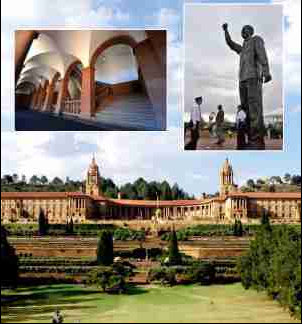 The nine-metre statue of former President Mandela cost a staggering R8 million to create. The unique bronze-plated statue was created by local sculptors Andre Prinsloo and Ruhan Janse van Vuuren.
The nine-metre statue of former President Mandela cost a staggering R8 million to create. The unique bronze-plated statue was created by local sculptors Andre Prinsloo and Ruhan Janse van Vuuren.
It portrays a smiling Madiba, standing with arms outstretched and one foot slightly forward. Prinsloo said the project had been a life-long dream of his. “His pose depicts how he embraces the nation, ” he explained.
Arts and Culture Minister Paul Mashatile said the new statue was an enduring symbol of our struggle for freedom, democracy, dignity, and equality. The statue is three metres taller than the six metre high Mandela statue at Nelson Mandela Square in Sandton, Johannesburg. Minister Mashatile announced the new statue as part of governments efforts to establish new symbols to reflect the collective aspirations of South Africans.
It is only fitting that a statue of Madiba be erected in the very same building where he was inaugurated as the first democratically elected President of South Africa in 1994.
New-year resolutions herald new beginnings
New-year resolutions herald new beginnings sadminAs we begin the New Year, it’s time to focus on the year ahead. Vuk’uzenzele caught up with a few South Africans who shared their New Year’s resolutions with us.

Jabu Dludlu, Standerton
My resolution for this year is to focus on getting a better job so that I can buy my own house soon. It is a dream of mine to be a home owner.
Martin Joyce, Belview East
I plan to make time this year to enjoy my life more and to do my best to live and lead a happier, healthier life. We often get swept up in what we want but don’t stop to be grateful for what we already have. 2014 is my year to reflect and uplift myself.
Sufaya Adam, Isipingo
My New Year’s resolution is to spend less time on social media platforms like Facebook, Twitter, BBM and Whatsapp and spend more time actually enjoying and experiencing life in person with real friends.
Sya van der Walt-Potgieter
This year I want to, more than ever before, make every second count and not waste my time on the small things that at times seem to overshadow the more important aspects of life.
Ziyanda Mdokwana, Soweto
In 2014, I plan to further my studies and gain practical experience in the beauty industry. This is a stepping stone to me one day owning my own beauty salon. My future begins now.
New houses restore dignity in N Cape
New houses restore dignity in N Cape sadminFor the past decade, some families near Galeshewe in the Northern Cape have been living in rickety structures made of cardboard boxes, corrugated iron, plastics and even fencing. Now, thanks to a new housing development, 500 families are about to become proud new home owners.
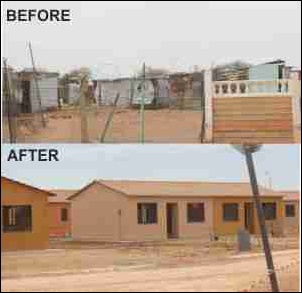 These families can expect to move into their new homes by the middle of the year.
These families can expect to move into their new homes by the middle of the year.
The new development, known as Lerato Park, was launched in October 2013 by Deputy Minister of Human Settlements Zou Kota-Fredericks together with the provincial MEC Human Settlements Alvin Botes.
At the launch nine families received ownership certificates and the keys to their new homes.
About 200 homes that form part of Phase 1 have been completed but the families will only move in later this year once Phase 2 developments are complete.
One of the beneficiaries is 79-year-old Adwang Jacobs. She is the oldest beneficiary and will become a home owner for the first time. Jacobs, who lived in a shack with her daughter and grandchildren for the past 15 years, Noluthando Mkhize could not hold back tears when she held the keys to her new home.
She told Deputy Minister Kota-Fredericks she thought she would live in her shack for the rest of her life and was grateful to government for her new home.
Among the list of beneficiaries announced the Deputy Minister was Diarajwaemang Mecwi and Sedia Moemedi who have passed away.
“We will award these homes to their families to allow their children to grow up in a comfortable environment with dignity,” said the Deputy Minister.
The new homes are part of the government’s informal settlement upgrading programme and will not just shelter the beneficiaries but will also give them access to water, sanitation, electricity and recreational facilities, she said.
“President Jacob Zuma said that we must be a government that serves the needs of our people - we must be service-oriented and ensure that we deliver the services that our people need effectively, efficiently and speedily. He made it clear that we must not make empty promises, we must not just talk - we must act,” said Deputy Minister Kota-Fredericks.
The new development, which cost an estimated R171 million, will see over 4 000 people of different ages and races living in together. The homes will vary from stacked apartment blocks to single story units which will be partially and fully subsidised as part of the new Finance Linked Individual Subsidy Programme (FLISP) housing, which is a first for the Northern Cape.
In addition to providing homes for the poor, the next phase will include subsidised housing for government officials who cannot afford bonds of their own, said the Deputy Minister.
Once completed Lerato Park will include 5 000 units creating homes for almost 30 000 people. To date, the project has created employment for over a 1 000 local youths who were taught skills such as paving, bricklaying and plumbing.
The Northern Cape also has another housing development called Ou Boks in the Colesberg area in the pipeline. The R57 million new development will fall under the Umsobomvu Municipality and will consist of 1 500 homes
Save more, spend less this New Year
Save more, spend less this New Year sadminHow about starting the New Year with a new attitude towards money?
 Save more and spend less is the advice to pay attention to in 2014.
Save more and spend less is the advice to pay attention to in 2014.
You can do this by investing in stokvels, children’s education, retirement funds and setting financial goals.
Tselane Moleba of the South African Savings Institute says there are many types of stokvels which include saving money, burial, buying groceries and investments.
“The first step is to get the right members. They should be people who trust each other. Everyone should agree to the rules of the stokvel and then draw up a constitution. The most important ingredient is trust. It is also best that you have a stokvel savings account at a bank.”
With rising education fees, especially at tertiary level, Moleba says starting to save early is key.
“The most important part of saving for your children’s education is beginning to save as soon as you possibly can, putting aside a certain amount each month and then investing that money wisely.”
She advises putting the money in different types of investments.
“Open savings accounts and teach your children to deposit their pocket money in it too. Look for education funds or set up a trust.”
It is also vital to ensure that when you can no longer work, you have enough money to look after yourself.
Moleba says the key to retirement is to plan ahead.
“Start saving, keep saving and stick to your goals. Take charge of your financial future. It is important to learn about your employer’s pension plan and also contribute to your employer’s retirement savings plan if applicable.”
She adds that people should put money into an individual retirement account, especially if they use an employer pension scheme because these funds may not be enough for retirement.
“Most importantly, seek the services of a professional to give you the various options available and which one can work best for you.”
Becoming a regular saver is a giant leap towards having enough money for the things you want, she says. When setting financial goals she advises to:
- Define your goals.
- Write down your goals.
- Develop a plan of action.
- Set milestones.
- Commit yourself to your goals.
Durban embraces green revolution
Durban embraces green revolution sadminYou don’t need a large piece of land to grow vegetables. This is the lesson from the Durban city centre, where the rooftop of a building has been turned into a vegetable farm.
The rooftop garden is a project of Priority Zone - a multi-departmental initiative to green the city centre and encourage civic pride. It is also part of the eThekwini Municipality’s Inner City Regeneration Project.
Nonhlanha Nyandeni, public relations officer of Priority Zone, says making money was not the aim behind the rooftop garden at the Priority Zone building on Monty Naicker Street.
“It is mainly for educational purpose and we are saying, within a confined space and with little budget, you can still have something to eat at the end of the day,” she points out.
From its rooftop garden Priority Zone provides fresh vegetables to local charities, old age homes and orphanages.
These vegetables include beetroot, spinach, cauliflower, carrots, herbs and cabbage, which are grown in the 200m by 400m rooftop garden.
“Within a confined space you can still have something to eat and provide for others who don’t have the capacity to do so themselves,” Nyandeni adds.
With government encouraging people to go green, Nyandeni says the zone is a good idea as it teaches people that they can grow food wherever they are.
The zone gets more than 100 visitors per month, mostly school kids. It recently hosted school children from Esiqumeni Junior Secondary School in the Eastern Cape to educate them about the environment.
Agriculture, Fisheries and Forestry Minister Tina Joemat-Pettersson also visited the zone recently and urged other cities to use the idea to feed its residents.
The green building forms part of efforts by the eThekwini Municipality to sweep crime and dirt off the streets of the Durban city centre and make it more attractive to both locals and tourists.
The zone employs about 150 people, including 40 security guards, 40 cleaners and 20 landscapers, who providing top up services to those provided by the eThekwini Municipality.
The municipality has teamed up with a private company, Drake & Skull Facilities Management, in a public-private partnership to revive the city centre. Since it was started in 2010, the project has seen security personnel being deployed, the inner city being cleaned up and the open spaces landscaped, making the inner city safer, cleaner and greener.
President Zuma’s Ghana visit a success
President Zuma’s Ghana visit a success sadminInternational relations
President Jacob Zuma has described his state visit to Ghana as a great success that has enhanced bilateral relations between the two countries.
 “It was a very successful visit and it has yielded very important results which will see our bilateral relations moving to a higher level. We had high level bilateral talks with President [John Dramani] Mahama and agreed on various issues and we are pleased with the substantial progress that has been made in strengthening bilateral cooperation,” said the President on his return to South Africa.
“It was a very successful visit and it has yielded very important results which will see our bilateral relations moving to a higher level. We had high level bilateral talks with President [John Dramani] Mahama and agreed on various issues and we are pleased with the substantial progress that has been made in strengthening bilateral cooperation,” said the President on his return to South Africa.
Two Memoranda of Understanding regarding transport, energy and the Bilateral Air Services Agreement were signed during the visit.
“Agreements were signed which highlight the level of cooperation between our two countries and we have agreed that these instruments should translate into concrete projects that will benefit our people and further promote our economic relations,” said President Zuma.
According to the Presidency, Ghana is a major export market for South African goods with investors from South Africa active in the mining, retail, insurance, transport, tourism, banking, telecommunications, construction, services, franchising, manufacturing, fishing, advertising, aviation and energy sectors of Ghana.
Both President Zuma and President Mahama encouraged the business sector to take advantage of the two countries’ cordial bilateral relations to enhance trade and investment as both countries were open for business and investments.
The talks between the two Presidents included regional, continental and global issues. South Africa and Ghana share common views with regard to the maintenance of peace, security and stability on the African continent, the need for greater intra-African trade, industrialisation of the African continent and reform of global institutions of governance such as United Nations Security Council.
SA, Nigeria to increase trade, investment
SA, Nigeria to increase trade, investment sadminInternational relations
South Africa and Nigeria should take every opportunity available to increase trade with each other, says Trade and Industry Deputy Minister Elizabeth Thabethe.
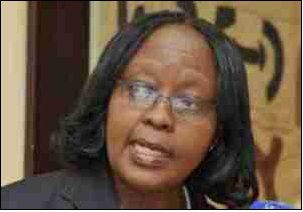 Although total trade between South Africa and Nigeria has increased substantially since 1999, there remains potential to diversify the trade portfolio and basket, and further increase total bilateral trade.
Although total trade between South Africa and Nigeria has increased substantially since 1999, there remains potential to diversify the trade portfolio and basket, and further increase total bilateral trade.
Deputy Minister Thabethe, accompanied by a business delegation, was speaking in Abuja, Nigeria during a trade and investment seminar recently.
“South Africa recognises the need to further strengthen our trade and economic ties, hence this mission to give our business people an opportunity to engage,” she said.
There was potential for trade between the two countries.
She added that a lot of work had been done by both countries on the business side and many South African companies had invested in Nigeria.
“The total large-scale Foreign Direct Investment (FDI) projects from South Africa to Nigeria from 2003 to date are 28 and amount to R35.3 billion. The jobs that have been created in Nigeria from these FDI projects are estimated at 5 505,” she said. The investment projects are in sectors such as telecommunications, financial institutions, property and retail.
“There are other planned big investments that are yet to enter the Nigerian market, judging by the way the current investments are doing. These projects will contribute immensely to the Nigerian economy,” she said.
The Deputy Minister encouraged Nigerian business people to invest in South Africa, while also encouraging them to take advantage of available opportunities. Deputy Minister Thabethe said the partnership between Nigeria and South Africa should be centred on making sure that poverty is ended on the continent.
The South African High Commissioner to Nigeria, Ambassador Louis Mnguni, said economic growth meant nothing if it did not translate into development of the people of both countries.
“We salute business people from South Africa and Nigeria as they already started business relations and the relations are growing tremendously,” said Ambassador Mnguni
SA, Namibia sign youth development pact
SA, Namibia sign youth development pact sadminInternational relations
South Africa and Namibia have signed a Memorandum of Cooperation (MoC) that will see the National Youth Service playing a much stronger role in youth development in the two countries.
The MoC was signed by Minister in the Presidency for Performance Monitoring and Evaluation Collins Chabane and Namibian Minister responsible for Youth National Service, Sport and Culture Jerry Ekandjo at the Union Buildings recently.
Speaking before the signing of the MoC, the chairperson of the National Youth Development Agency (NYDA), Yershen Pillay, said: “We have much to share and learn from each other, given the highly structured and effective youth service programmes in our respective countries.”
Pillay said the NYDA and Namibia’s National Youth Service (NYS) would immediately get to work in implementing the Youth Service Exchange programme, where Namibian and South African youth will engage in community development work from February 2014 to February 2015.
“This will not be a memorandum on paper but an organic, practical and sustainable programme for youth development.
“Youth will be given vocational training to acquire skills in metal fabrication, plumbing, cabinet making and bricklaying,” he said.
In South Africa, Pillay said the youth would undergo leadership development and youth development foundation training. After completing the training, they will be deployed to render youth development services to young people at NYDA branches countrywide.
In South Africa, approximately 138 000 young South Africans are enrolled in the National Youth Service.
Through the MoC, the NYDA chairperson said young Namibians and South Africans would work together to fight poverty, inequality and underdevelopment.
“Together we will develop skills through youth service and utilise those skills to build our respective countries, thus ensuring peace and progress in the region.
“The significance of the MoC is the venue where we are signing the agreement (the Union Buildings), which is one of the building blocks of dismantling what apartheid [did to] us and Namibia,” said Minister Chabane.
The Minister said the two countries shared a common history, and it was important for youth of SA and Namibia to work towards a united future.
“We are confident that if we combine our strength, we will be able to integrate the region - not only Botswana, Lesotho, Namibia and Swaziland, but the SADC region in general, working together to fight the issue of youth unemployment and lack of skills.”
Sports Minister Fikile Mbalula was also present as the signing.
“Sports play a critical role in terms of social cohesion and nation-building. What divides us are the borders, but in reality, we are one people.
“The signing of the MoC signifies unity of purpose going forward between our two countries. From our side, we will work together to ensure that we build sound relations to enhance bonds of human solidarity between South Africa and Namibia.”
Ekandjo said the youth of his country also faced similar challenges of employment and lack of skills.
“We commit to working with South Africa on this critical issue of youth development and empowerment,” he said.
The MoC, which has been approved by the South Africa Cabinet, is also intended to formalise and strengthen relations in the area of youth empowerment and development.
It will further encourage mutual cooperation between youth development institutions and organisations in both countries.
The two countries will promote cooperation in areas such as leadership development; exchange of information on youth development research; the promotion of access to finance for business development and support of youth owned enterprises; the sharing of experience in areas that enhance social cohesion such as sports, arts, culture and heritage; and the sharing of best practices in the area of youth development.
The parties also agreed to host joint workshops and seminars; exchange visits and jointly organising meetings and conferences in both countries; exchange training curricular for managers and staff of institutions responsible for youth development; exchange documentation and information on youth development and monitor, evaluate and report on implementation of the MoC.
Springbok donate books to the needy
Springbok donate books to the needy Estelle GreeffSport, arts and culture
The Springboks rugby squad and parent union the South African Rugby Union (SARU) are on a mission to donate libraries and books to promote literacy among learners from previously disadvantaged schools.
SARU is planning to provide at least 23 libraries per year across South Africa, in line with the 23 players in the national team. The project will be assisted by corporate and public sponsorship to ensure that the target is reached.
SARU CEO Jurie Roux says though the “Boks for Books” initiative is still in its early stage, he is happy with the impact it has made and the recent donation of a library to Gcobani Higher Primary School in Mdantsane (Eastern Cape) was the first of many.
The campaign has seen Springbok stars read to learners at various schools, including Siyabulela Primary School in Langa outside Cape Town. They are also participating in Tag Rugby Clinics.
In June, SARU named Kwamanzini Primary School in Kwandengezi Township on the outskirts of Pinetown, KwaZulu-Natal as the first recipient of a Boks for Books library. The school received a fully functional library, including a reference section, computers and printers, costing R445 000.
“This is just the first step of the campaign. Over the coming months and years we will be opening more libraries and announcing other initiatives to promote literacy among our children.
“I am also excited to announce that a number of our sponsors have immediately expressed their desire to partner in this project and we will be making further announcements in due course. We are committed to making a difference by putting something back into South African society.”
At the same time, former Springbok lock and Bulls captain Victor Matfield, his former teammate Pierre Spies and Chilliboy Ralepele and former Isidingo actress Hlubi Mboya also donated books to the Boikanyo Primary School. The donation was done in partnership with BMW and 46664 Foundation. The library was the 27th to be donated by the partnership between BMW and the foundation.
Deputy principal at Boikanyo Primary School Fatima Peete said the donation would help dispel the notion that black children do not read and would improve their level of literacy. “Definitely, it will improve their literacy and those children who did not show any interest in books have started coming to the library and their interest in reading has increased,” she said.
Hoist the flag, sing the anthem
Hoist the flag, sing the anthem sadminSport, arts and culture
As the country enters its second decade of democracy, South Africans have been urged to hoist the national flag, sing the national anthem and show love for the country.
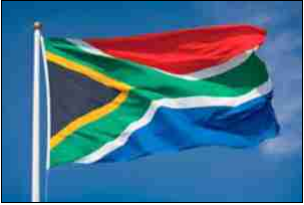 The Gauteng Provincial Government in partnership with the Provincial Legislature launched “My South Africa: Thand’ Umzansi Campaign”, an initiative aimed at instilling civic pride and patriotism as well as promoting active citizenship amongst South Africans.
The Gauteng Provincial Government in partnership with the Provincial Legislature launched “My South Africa: Thand’ Umzansi Campaign”, an initiative aimed at instilling civic pride and patriotism as well as promoting active citizenship amongst South Africans.
The campaign aims to contribute to nation-building and social cohesion - two priorities of government.
Gauteng Premier Nomvula Mokonyane says as South Africa approaches the twentieth anniversary of democracy, government wants to honour all those who brought the democracy to fruition.
“Importantly, this campaign draws on the strength of our democracy and uses three very strong symbols that are an embodiment of our of democracy: our flag, the Constitution and the national anthem; all that are used to unite South Africans to instil patriotism, understand the Constitution and promote identity and active citizenship.
“Through the campaign, citizens, including schools, are encouraged to hoist the South African flag, sing the national anthem and read the pre-amble of the Constitution on the first Monday of each month,” says Premier Mokonyane.
“Constitution Hill will be working with the Department of Sports, Arts, Culture and Recreation to put flagpoles and flags in 50 identified schools in the province within the first phase of the project,” says Premier Mokonyane.
In addition, the Constitution Hill will work with the Gauteng Department of Education to train the prefects to understand how to hoist the flag, read the pre-amble and sing the national anthem.
These prefects will then become ambassadors of the Constitution Mondays Campaign in their schools.
In addition, the Department of Sports, Arts, Culture and Recreation is also assisting with ensuring that all provincial departments and agencies roll out the campaign and join in by gathering on the first Monday of every month to hoist the flag, read the pre-amble to the Constitution and sing the national anthem before they begin work.
Speaking on how to safeguard the Constitution, Judge of the Constitutional Court, Justice Johan Froneman, says each and every South African has a responsibility to uphold the values of the Constitution.
“Safeguarding the Constitution does not depend on who is in power but the responsibility is with each and every one of us.”
Using art to change lives
Using art to change lives sadminSport, arts and culture
Art is a form of expression, so why not inspire learners to express themselves. These are the sentiments of hotel group Tsogo Sun who, together with the Gauteng Department of Education, have launched its Sun Cares Arts Academy in 12 schools in Gauteng.
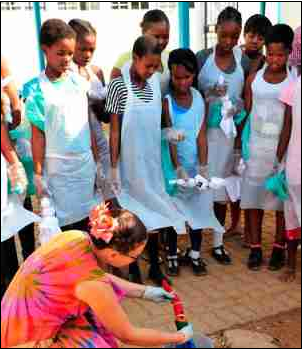 Through a specially designed full-year curriculum, learners are taught to use art to change their lives, says Shanda Paine, Tsogo Sun’s Group CSI Manager.
Through a specially designed full-year curriculum, learners are taught to use art to change their lives, says Shanda Paine, Tsogo Sun’s Group CSI Manager.
Six schools in Diepsloot near Montecasino and six in Mayfair near Gold Reef City – have been selected. Forty learners with the potential to do well in the arts programme were chosen from each school and in total 480 learners from Grades 4 to 9 will receive two sessions on speech and drama, dance, vocal training, voice projection and other fun-filled art activities.
“The lessons and projects will also teach learners life skills that will cover a broad spectrum of topics to empower the youngsters to make sound life choices throughout their lives,” says Paine.
The first lesson will see learners channelling their creativity with a lesson in tie-dye. This is an art form which uses paint to create patterns on clothing. Learners will tie-dye T-shirts which will also double as their uniforms for the duration of the programme. “It is also a chance to see their individual expression of creativity.”
According to Paine, the Art Academy is part of the hotel group’s SunCares programme, which was launched in 2012. The programme is closely aligned to government’s priority of introducing extra-curricular activities back into schools. Minimax Performing Arts, which has been providing young South Africans with a platform to express themselves through the performing arts for more than 12 years, was brought on board to develop and run the programme in the selected schools.
“It is very important for us to create various social programmes, entrepreneurial development and to be environmentally responsible. Building talent and capability in the performing arts sector is a big priority for us,” said Paine.
Glenn Joseph, the general manager of Montecasino and project head, is enthusiastic about the potential for the programme. “We are extremely excited and proud to reach so many youngsters in such a meaningful way. I have no doubt that we will soon see these youngsters embrace their teachings and one day see them make a real contribution to the performing arts in South Africa.”
At the end of each year, the programme will host a performing arts extravaganza where the children will present their own productions within their communities.
